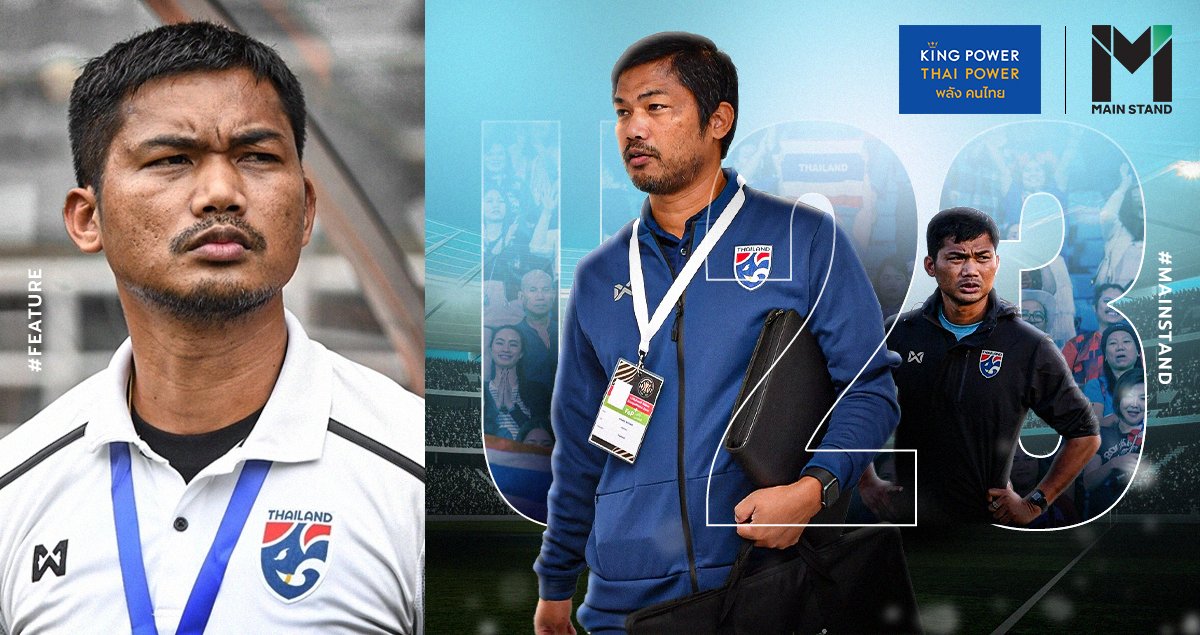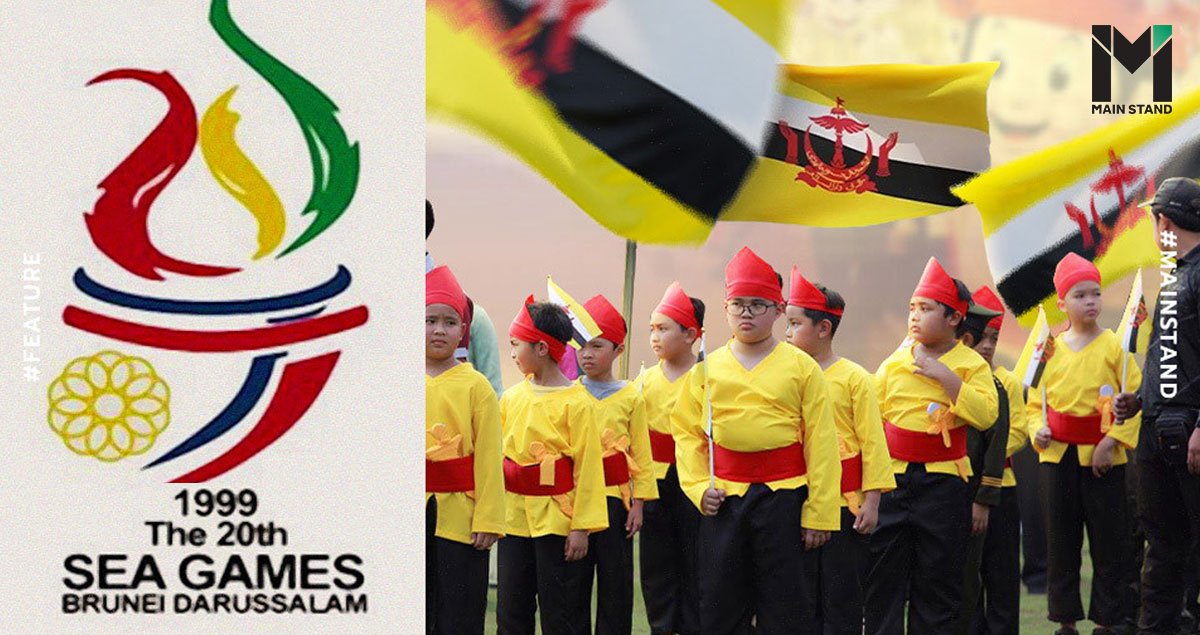
Going back to 1999, a small country on the island of Borneo had a chance to host one of the most significant events of the year; the Southeast Asian Games. Brunei was the first country outside the region’s five ‘major powers’ to have this honor.
Main Stand will take you behind the scenes of Brunei’s hosting of the SEA Games. How did a nation with just 320,000 people manage to secure this opportunity? What did the oil-rich country gain from the event? Read along to find out.
Becoming an ASEAN powerhouse?
“The last SEA Games before a new millennium,” is the quote associated with the 1999 SEA Games, which was the tournament’s 20th edition. This event was touted as the gateway to a new era, coinciding with Brunei’s ambitions.
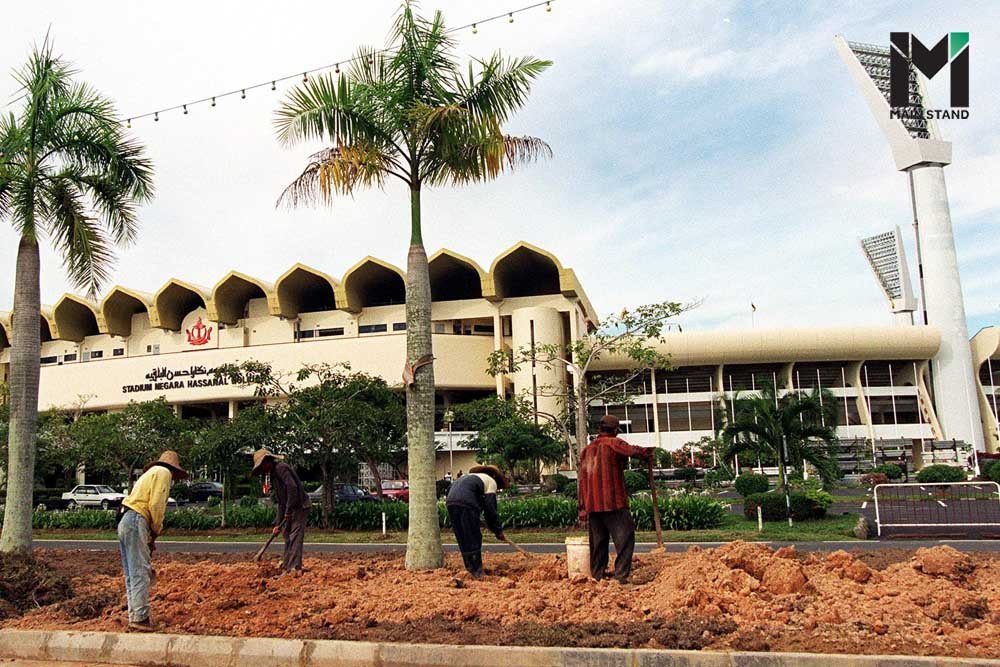
Thai people associate Brunei with oil tycoons. Going back to when they was still a British colony, Brunei was still a tiny strip of Borneo island which lagged technologically and was far from prosperity. Even Filipinos, who were their close neighbors, knew nothing about them.
The reason Brunei took 50 years to develop itself from a colony to one of the strongest economies in SEA is due to its drive.
The year 1975 was significant for ASEAN as many changes affected the region's power balance. After the end of the Vietnam War, US influence on the region slowly faded away and the Southeast Asia Treaty Organization (SEATO) was abolished soon after.
With the USA stepping out from Asia, ASEAN countries joined forces to promote regional growth. Brunei was one of the countries with the same ideals, allowing investors from ASEAN to conduct businesses, such as Filipino engineering companies.
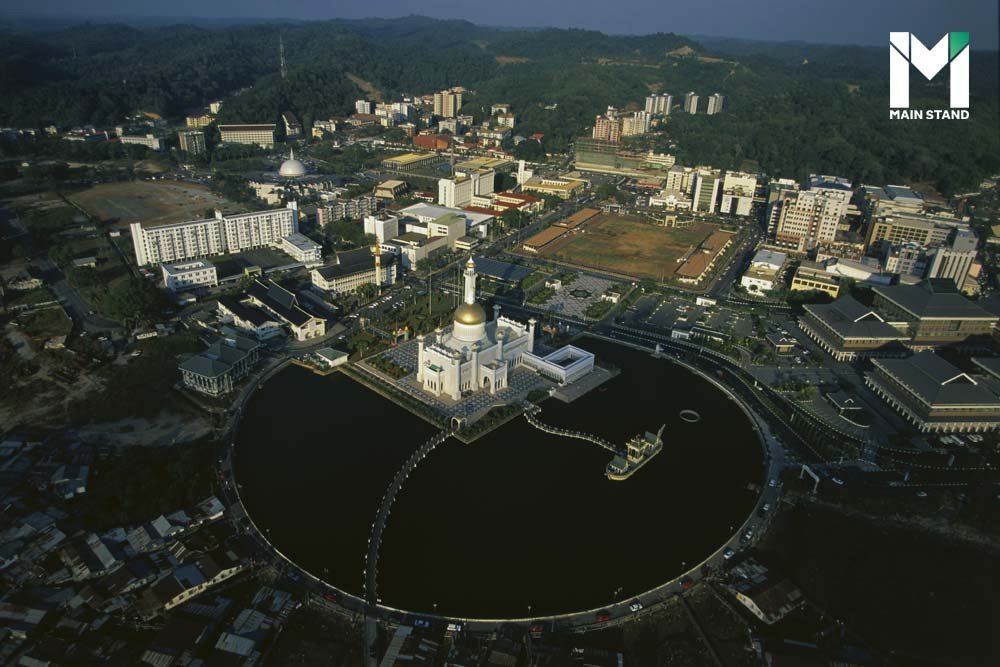
During that same year, three countries from the Indo-China region, Vietnam, Cambodia, and Laos, withdrew from the SEA Games due to communist revolutions. This led to more countries being invited to replace them. Brunei was one of those countries, as it took part in the SEA Games for the first time in 1977, when the competition’s name was changed from the Southeast Asian Peninsular Games to Southeast Asian Games (SEA Games).
Being part of the SEA Games was a monumental step for Brunei in becoming part of ASEAN, but they were still far from the region's top nations. The group, known as ASEAN-5, were the only countries that hosted the regional games, with Thailand in 1977, 1985, 1995, Singapore in 1983, 1993, the Philippines in 1981, 1991, Malaysia in 1977, 1989 and Indonesia in 1979, 1987 and 1997.
For two reasons, other countries did not have a chance to host SEA Games. The country was too small or the economy was too weak. However, ASEAN-5 has always invited smaller nations to host SEA Games with the condition that those countries are “prepared” to do so.
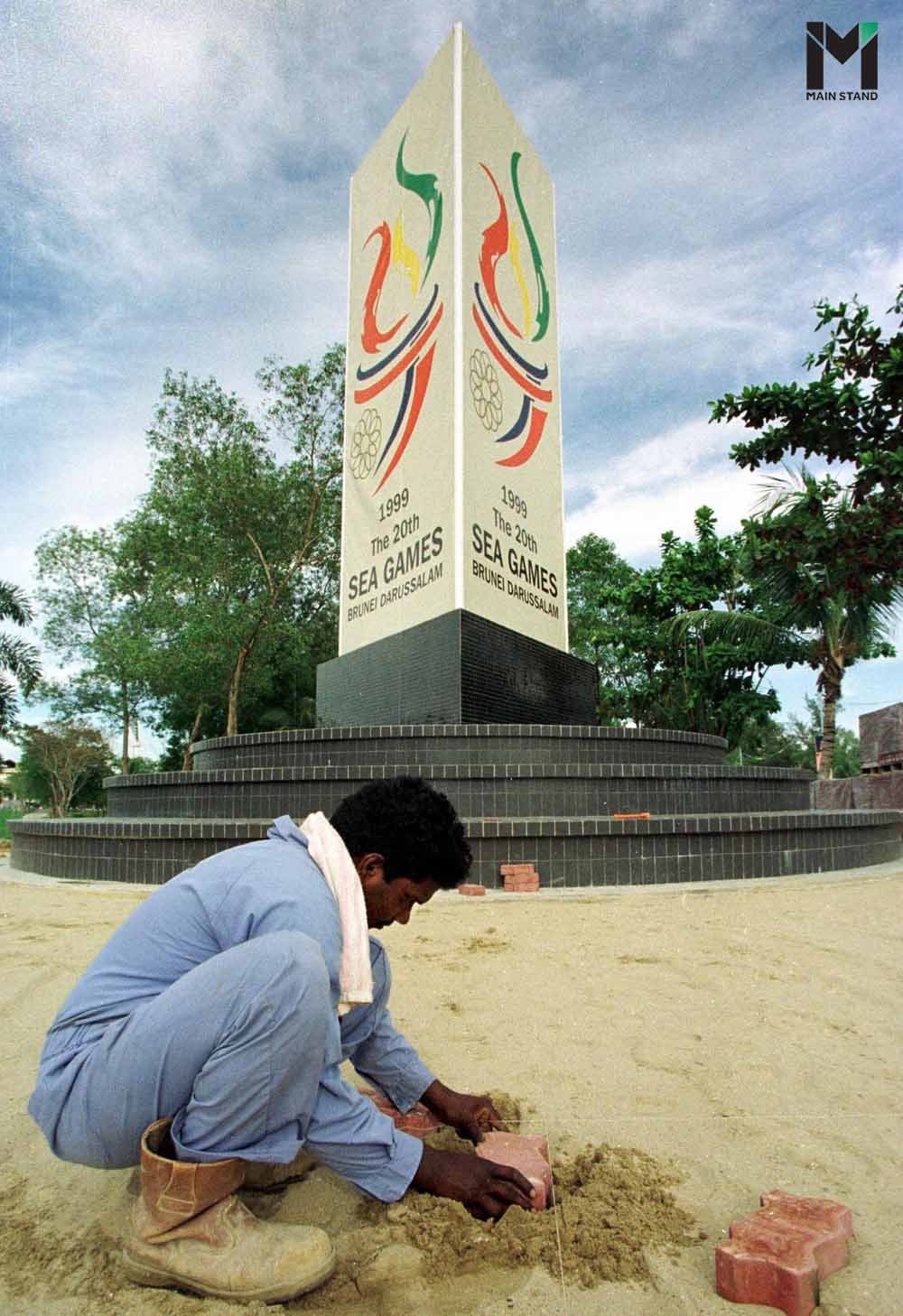
Outside the countries in ASEAN-5, Brunei was the first to host the SEA Games in 1999. Their efforts began in 1983, but they were deemed unprepared and still a British colony at the time. They were finally rewarded 16 years later with a tournament that was quite literally a gateway to a new era for the country. Since then, Brunei has declared itself equal to ASEAN-5 regarding readiness, economic power, and political power in the region.
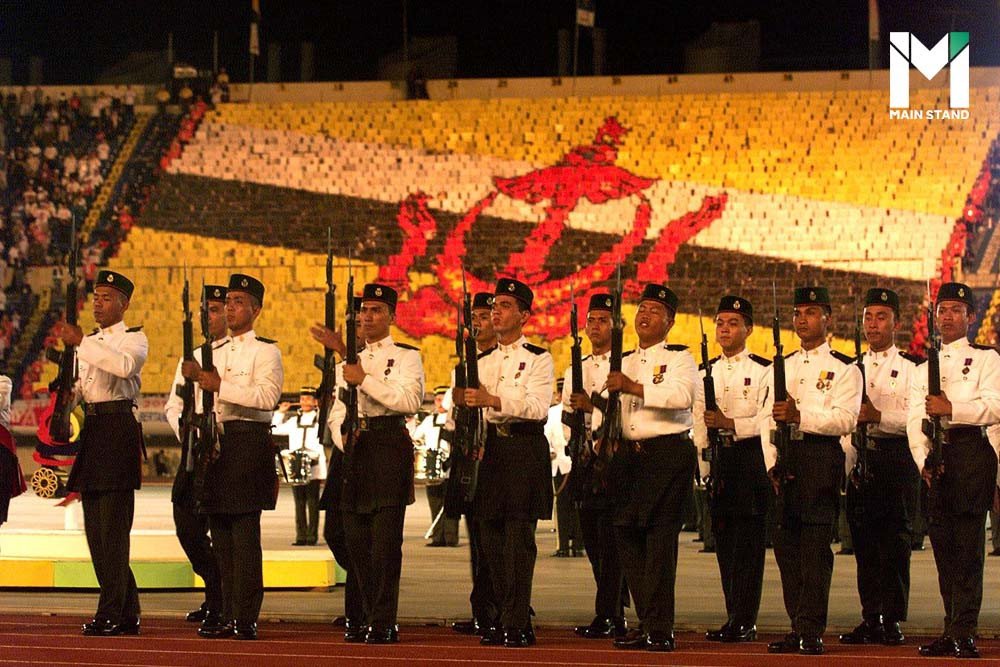
Event for a better economy
Hosting the 1999 SEA Games improved Brunei’s standing in the region and supported the country’s economy. The year 1999 was a nadir for the Southeast Asian economy due to the ‘Tom Yum Kung’ crisis, which impacted Brunei. This led to a plummet in the nation’s oil and gas prices.
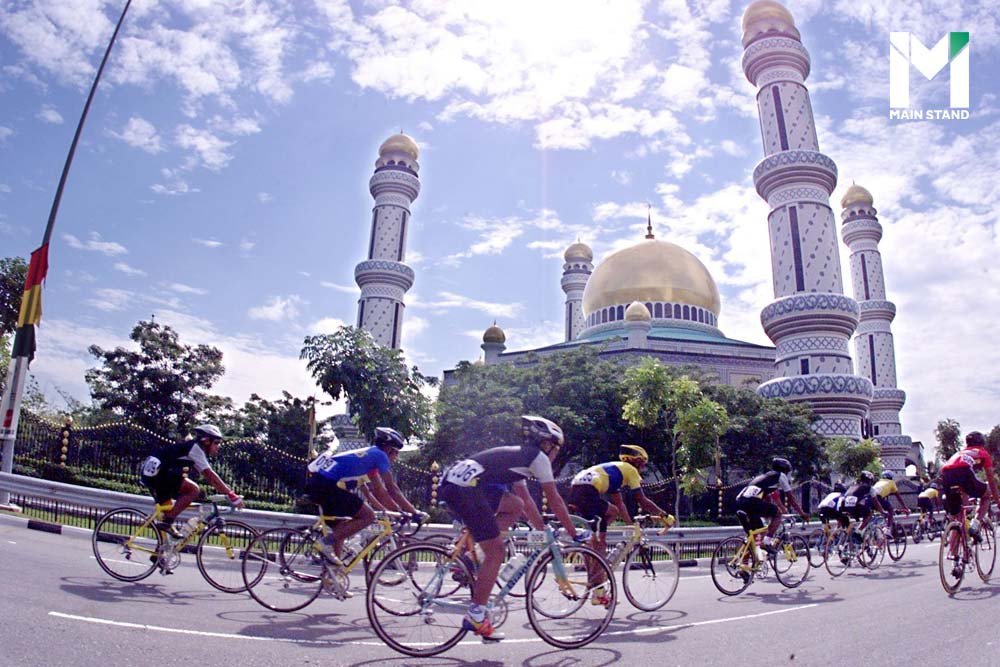
The two accounted for 90% of Brunei’s exports, but after the economic crash, trade partners in Southeast Asia and Japan reduced demand for oil and gas, dropping prices to $9 per barrel. The decline in the oil export business forced Brunei to explore other sources of revenue for the country.
Brunei concluded by aiming to be a global financial center with the authority to allow multinational companies to conduct businesses in their country with little to no tax. Brunei needed to demonstrate its economic prowess, work agility, and political stability to reach that goal.
The nation had strong ambitions to become the hub for exchange and tourism, which was a conjoined effort alongside other ASEAN countries like Indonesia, Malaysia, and the Philippines. To achieve its goals, Brunei has spent millions of dollars on improving its communication infrastructure to signify its readiness to the world.
The 1999 SEA Games was a significant factor and an opportunity to show the nation’s prowess, as all eyes were on them. Brunei’s success in hosting the SEA Games could lead to a chance to host the Asia-Pacific Economic Cooperation (APEC) meeting in 2000. Having key global leaders as guests would be a huge step toward Brunei’s ambitions.
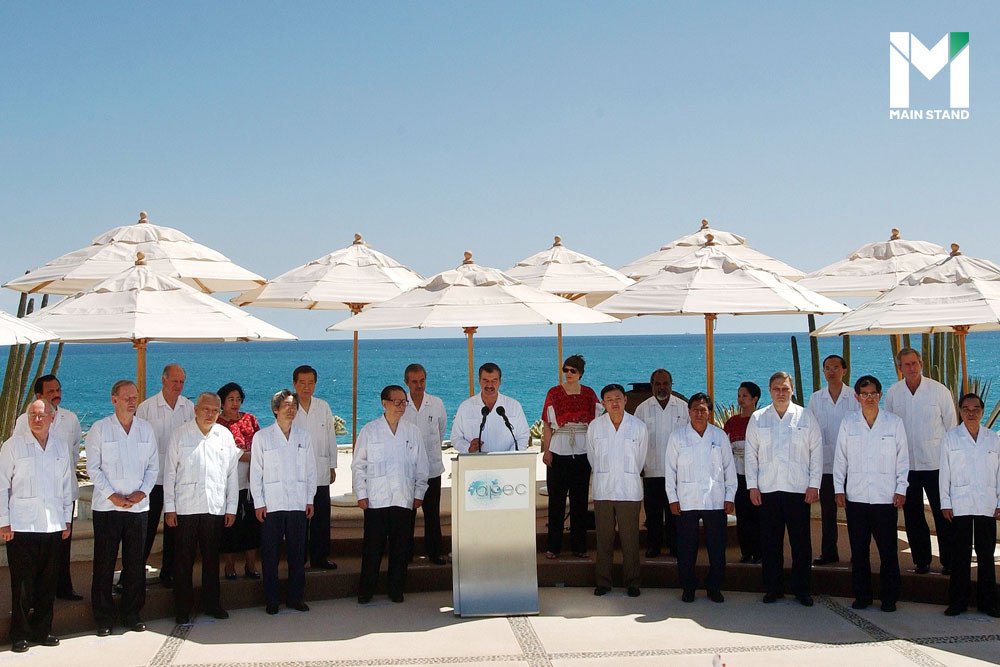
Conversely, if Brunei did not show capability in hosting SEA Games, it would not reach the point of hosting the APEC meeting. Both events were crucial for Brunei’s development, demonstrating to the world that they were not just a tiny oil state but were ready for more extensive and greater things.
Positive social impact
Hosting the SEA Games improved not only international relations but also resolved social and political issues domestically as well. Prior to the games, the nation’s economic decline affected the population’s welfare with the decrease in the minimum wage for soldiers and government officials. It resulted in an increase in theft and drug-related crimes among Brunei’s youth.
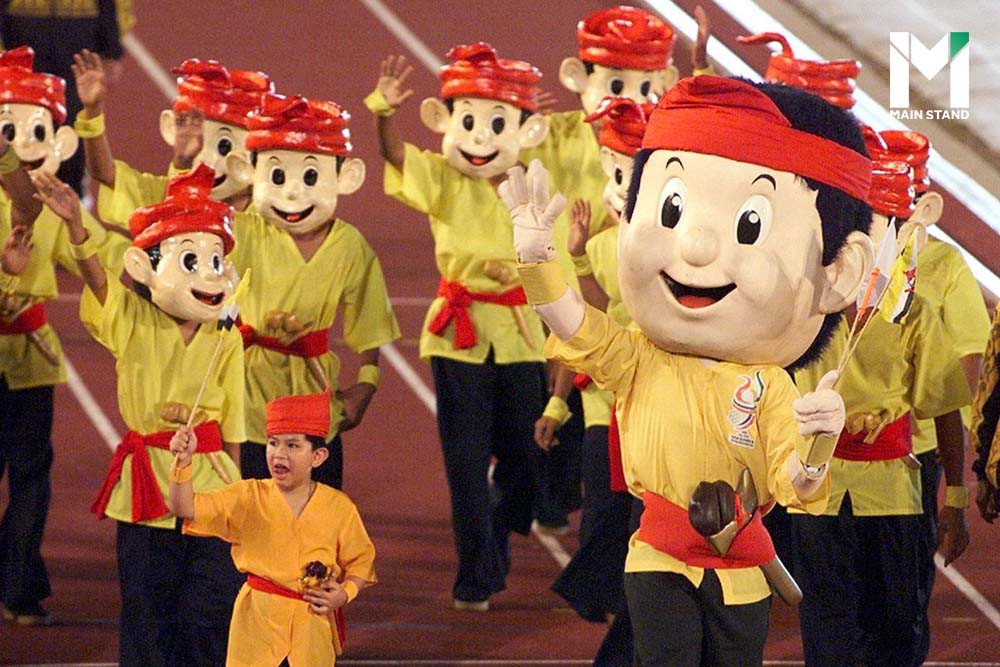
Organizing an event in which everyone was involved aided Brunei’s youth in escaping this toxic environment and gave them a chance to support their nation. There were reports that most 17,000 volunteers were in their teens. These youngsters helped during both the opening and closing ceremonies.
The involvement of civilians in a global sporting event led to better relations between the people and the government. Amidst the economic turmoil, the success of the 1999 SEA Games gave Bruneians pride and patriotism, which was much needed at the time.
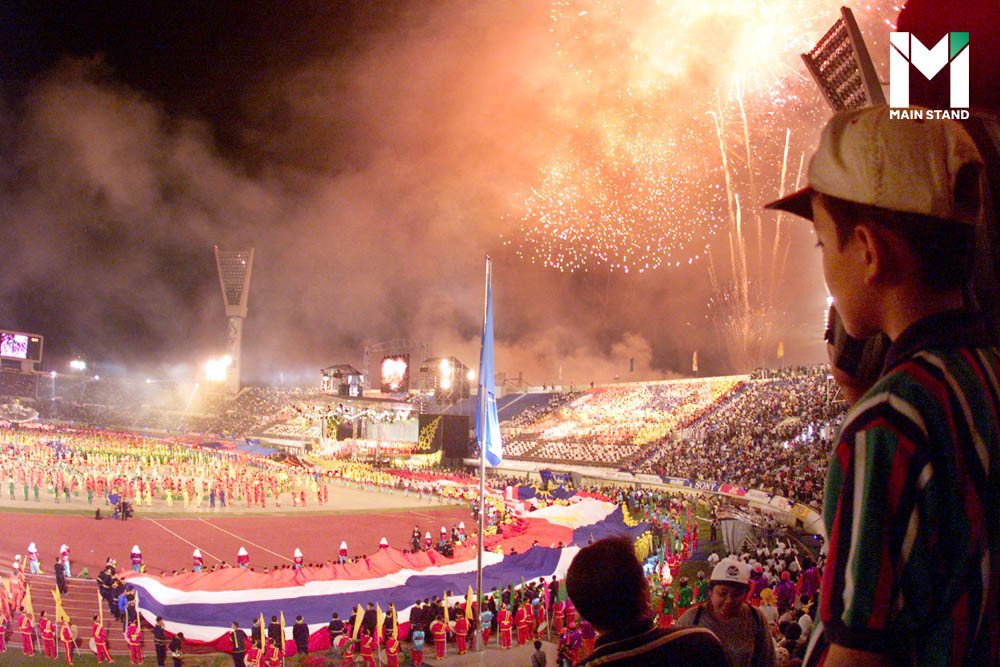
The 1999 SEA Games held utmost importance to the people of Brunei, and with all the praise following their success in the event, their confidence was bolstered for the upcoming years.
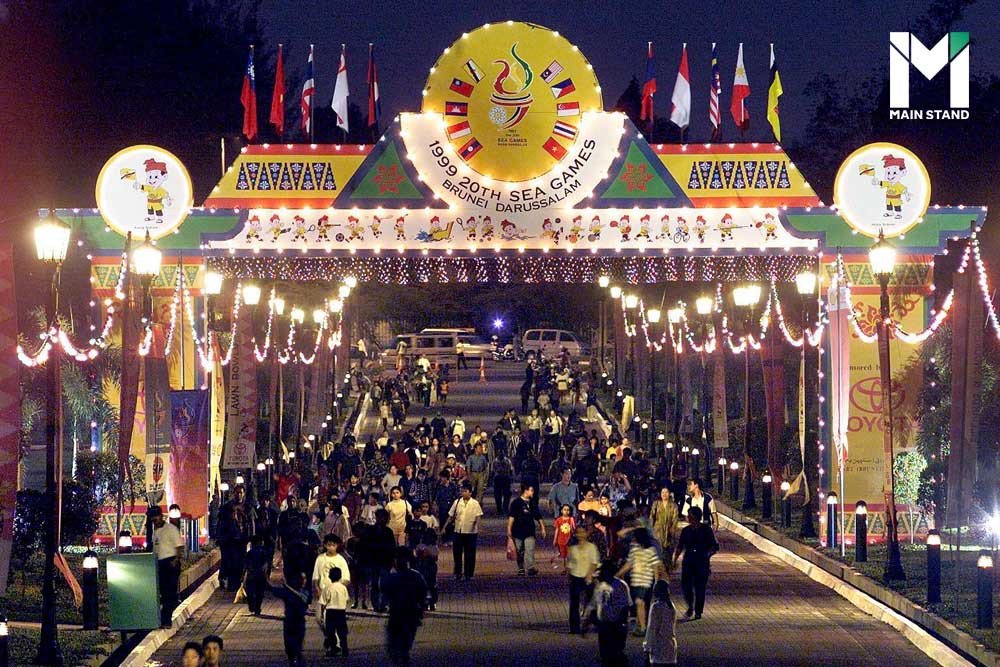
To this day, Brunei has not hosted the SEA Games again. This is not a surprise, as the country’s current focus goes beyond sports. The country’s success from 1999 has shown how the nation can use a sporting event to elevate themselves from economic hardships. The SEA Games uplifted Brunei’s patriotism, economic opportunities, and social standards for generations. The event is another case study of how sports can help inspire an entire nation.
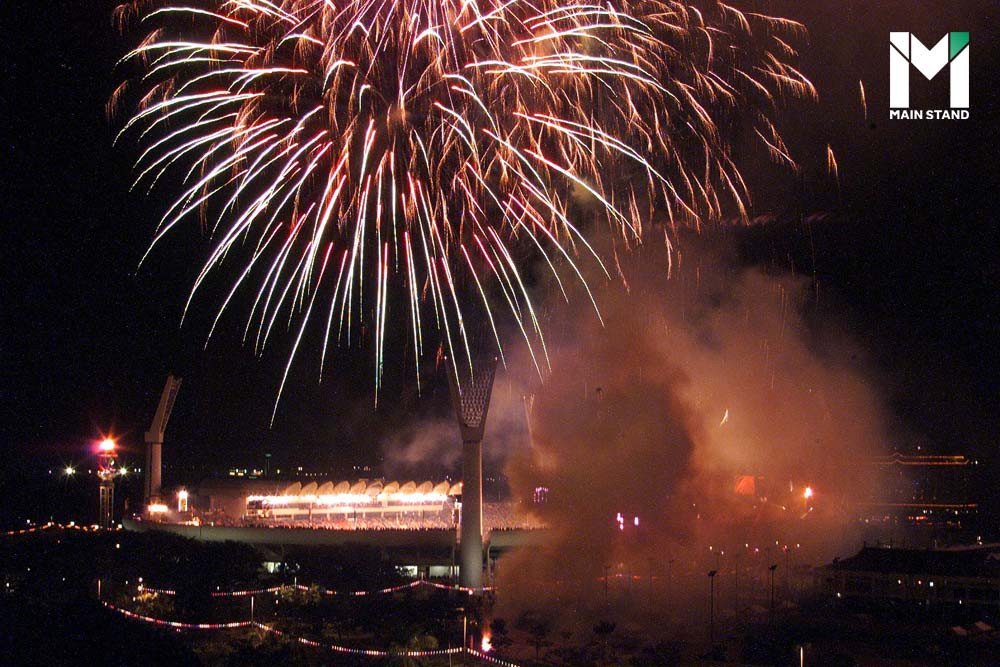
Sources:
https://www.cambridge.org/core/journals/trans-trans-regional-and-national-studies-of-southeast-asia/article/eternal-friends-and-erstwhile-enemies-the-regional-sporting-community-of-the-southeast-asian-games/3455D9F70A541397668964B4323CCDD4
https://globalnation.inquirer.net/87155/waiting-for-aquino-in-brunei
Southeast Asian Affairs 2000 by ISEAS Publishing






